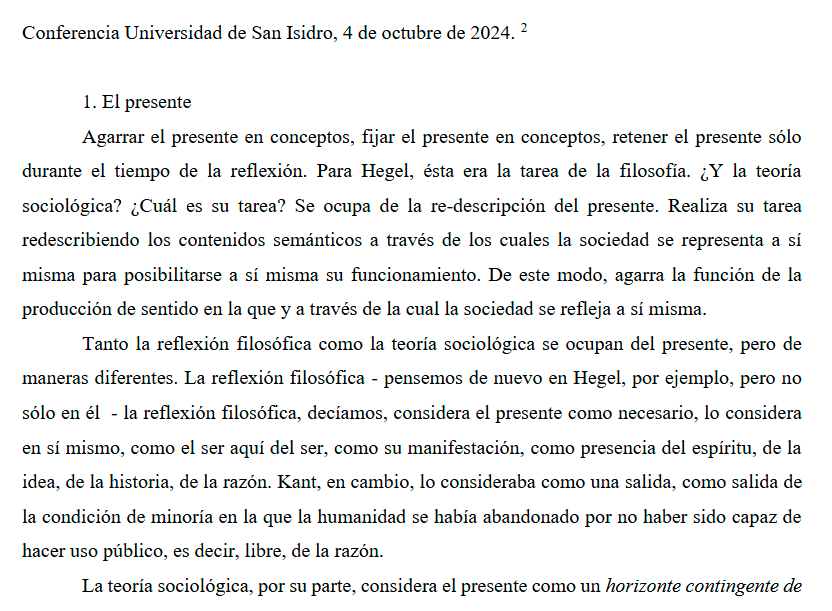Tradition and revolution in the origins of Hegel's philosophy of law
Keywords:
philosophy, Hegel, Natural Law, ethics, lawAbstract
The figure of Hegel continues to be 'despite the passage of time', decisive and central to the definition of what we know as modernity, and continues to be a fundamental reference to characterize what is known as 'Western thought', if we assume this as the one that starts from the formulations developed in the Greco-Roman classicism. Hegel inaugurates the idea of
revolution for thought and shapes it 'in his own way' in the same historical process. The influence of the French Revolution will be decisive, to the point of making it the central reference point of his philosophy. From being a political phenomenon, it becomes an event of strong ontological thickness. The political fact of the denial and demolition of the monarchy operated by the revolution, is projected by Hegel as a new ontology of the conflict; The revolution is permanent change and innovation, it establishes a constituent force that does not stop at regime change, but rather stabilizes and affirms itself as a system. Hegel is a pioneer in formulating the idea of the system as a conflict processing operation. The philosophy of law will be a key piece in this new characterization of the world and of reality. In this essay some semantic passages of this operation that Hegel develops in his formative phase, prior to the formulation of his systematic works, the Phenomenology of Spirit, the Science of Logic and the Fundamentals of Philosophy of Law, appeared in 1807, are reviewed. , 1817 and 1820 respectively.
Downloads
References
Böckenförde, E. W. (1969) La pace di Westfalia e il diritto di alleanza dei ceti
dell’Impero, en Lo Stato moderno. Accentramento e rivolte (vol. III), a cura di E. Rotelli e P. Schiera, Bologna, Il Mulino, 1970-1974.
Bobbio, N. (1979) Societá e stato nella filosofía política moderna, Il Saggiatore, Milano. Borso, D. (1976) Hegel político dell’esperienza, Feltrinelli, Milano, Italia.
Bruner, O. (1970) Neue Wege der Verfassungs- und sozialgeschichte, Götingen, Vanderhoeck und Ruprecht, 1968, trad it, Per una nuova storia costituzionale e sociale, Milano, Italia.
Cacciari, M. (1978) Dialettica e critica del político, Saggio su Hegel, Milano, Italia.
Habermas, J. (1973) Prassi politica e teoria critica della società, Bologna, Il Mulino, Italia.
Hegel, G. W. F (1978). La costituzione della Germania, en Scritti Politici, Bari,
Laterza, 1971, p. 42 (ed. alemana «Die Verfassung Deutschland», en Scriften zur Politik und Rechtsphilosophie, G. Lasson, Lipsia, 1923), traducción en español en, Escritos de Juventud, FCE, México.
Hegel, G. W. F. (1979) Le maniere di trattare scientificamente il diritto naturale,
posizione di questo nella filosofia pratica e suo rapporto con le scienze giuridico- positive, en Scritti di filosofia del diritto (1802-1803), a cura di A. Negri, Bari, Laterza, 1971, p. 95. Hay traducción española de Dalmacio Negro Pavón: Sobre las maneras de tratar científicamente el derecho natural, Madrid, Aguilar.
Hegel, G. W. F. Sistema dell’eticità, en Scritti di filosofia del diritto (1802-1803).
Hegel, G. W. F. I. Frammenti sulla filosofia dello spirito (1803-1804), en
Filosofia dello spirito jenese.
Hegel, G. W. F. (1971) Filosofía del espíritu de 1805-06 «II. Filosofia dello
spirito (1805-1806)», ed de Giuseppe Cantillo, Bari, Laterza, citado como FSJ II. Hay traducción española: G. W. F. Hegel, Filosofía real, prólogo y ed. crítica de José María Ripalda, México D.F., Fondo de Cultura Económica, 2003.
Hegel, G. W. F. Fenomenologia dello spirito, vol. I, E. De Negri (trad.), Firenze, La Nuova Italia, 1976.
Hobbes, T. (1982) Del ciudadano y Leviathan, Tecnos, España.
Schiera, P. (1976) La Prusia fra polizia e “lumi” alle origini del “Modell
Deutschland”, en Annali dell’Istituto Storico Italo-Germanico (ISIG) in Trento, 1. Bologna, Italia.
Riedel, M. (1975) Hegel fra tradizione e rivoluzione, Roma, Laterza. Ritter, J. (1970) Hegel e la Rivoluzione Francese, Napoli, Guida.


